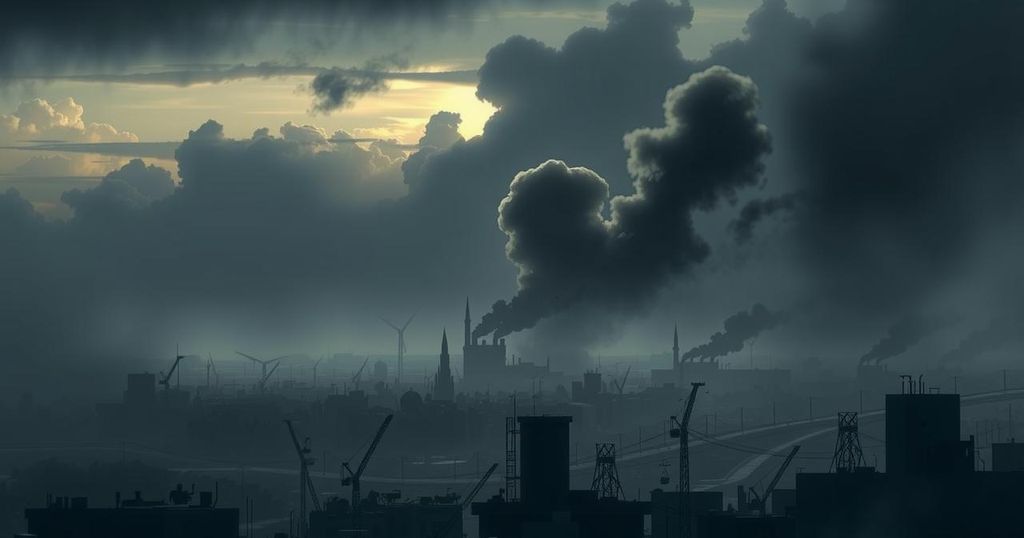The BBC reports on the civil war in Sudan, focusing on the battle for Khartoum, where the army is regaining control from the RSF. Atrocities by retreating RSF fighters are highlighted, alongside accounts of severe civilian suffering. Despite some military advances, the humanitarian crisis persists, with widespread devastation and ongoing fear for residents.
The BBC reports on the ongoing battle for Khartoum amid Sudan’s civil war, highlighting atrocities committed by retreating fighters. The paramilitary group, Rapid Support Forces (RSF), initially held the capital but has lost significant ground to the army, which aims to regain control entirely, marking a potential turning point despite not signaling an end to the conflict. Recent military advances have encircled Khartoum, with troops clearing areas in the north and east, resulting in widespread destruction of reclaimed territories.
Destruction is evident throughout the city, with numerous damaged buildings and debris littering the streets. Despite some areas appearing untouched, fear persists among residents. In Haj Yusuf, an eastern district, a resident recounts a traumatic encounter when RSF soldiers randomly shot at her sons, resulting in the death of one and leaving another wounded. The family’s hopes for medical help were dashed due to a power outage crippling the local hospital’s blood supply.
Residents describe extreme violence as RSF fighters, initially engaged with civilians, escalated their attacks and committed acts of sexual violence. One resident disclosed a harrowing experience when soldiers shot around a group of women before dragging one into a house to be raped at gunpoint. An RSF spokesman denied these allegations, claiming they had operated without major crimes for two years, despite accusations from the UN and US about war crimes committed by both sides.
In the affluent suburb of Karfuri, top RSF officials have fled, leaving the area looted and abandoned. Even the residences of top RSF leaders were ransacked as the army believes that most are now out of the city, consisting mainly of lower-ranked fighters still in Khartoum. The military’s strategy includes employing drones to distribute messages urging remaining fighters to surrender.
Despite some areas being cleared of RSF influence, sporadic shelling persists, disrupting attempts at normalcy among residents. Many people express relief at feeling somewhat safe, yet the memories of violence haunt them. Survivors like Hussein Abbas, displaced multiple times, return to witness their destroyed homes and express emotional distress over the loss of their former lives.
The situation in Khartoum highlights the severe impacts of the ongoing civil war in Sudan, with the military gaining the upper hand against the RSF, yet atrocities and suffering continue. Residents recount traumatic experiences, indicating that despite the military’s advances, the conflict and its consequences for civilians remain dire. The destruction and emotional scars left on the community suggest that the path to recovery will be a prolonged and painful journey for the people of Sudan.
Original Source: www.bbc.com






